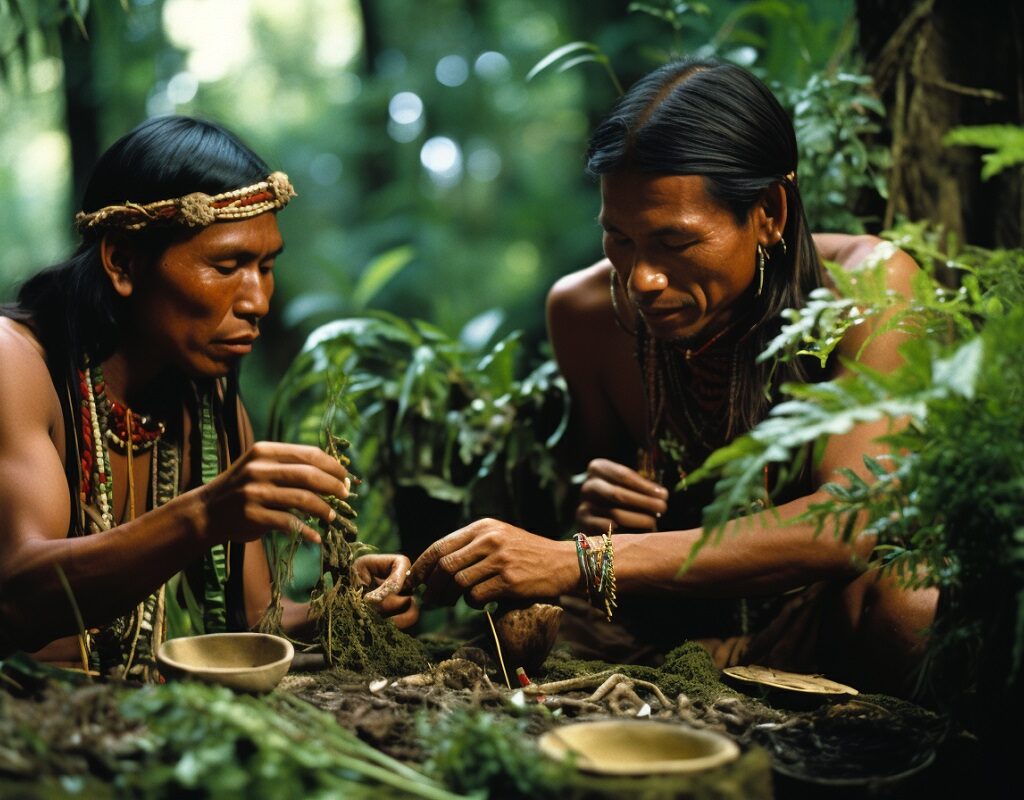Latin America’s spiritual richness is evident in its ancestral rituals, deeply rooted in indigenous traditions. Far from being relics of the past, these practices continue to shape contemporary culture, offering a unique perspective on life and our connection to the universe.
The Legacy of Spiritual Traditions
Latin America’s history is deeply intertwined with its spiritual traditions. Each ancestral practice carries a legacy of wisdom and a connection to nature. Passed down through generations, they reveal a rich, diverse past and provide valuable lessons for today.
Ayahuasca: A Bridge Between Earth and the Divine
Ayahuasca, known in various cultures as “the vine of the dead” or “the spirit vine,” is a hallmark of Amazonian ancestral practices. This sacred brew, made from the Banisteriopsis caapi vine and chacruna bush leaves, is central to numerous spiritual ceremonies.
Its use, deeply embedded in indigenous communities, is seen as a way to connect with the spiritual world, offering participants deep introspective and revelatory experiences.
Diversity of Rituals in the Latin American Heart
Beyond ayahuasca, Latin America is home to a variety of spiritual practices. From peyote rituals in northern Mexico to Mayan ceremonies in Central America, and Andean healing rites, each ritual represents a unique facet of Latin American spirituality.
These practices are more than acts of faith or tradition; they’re expressions of a deep, respectful relationship with the universe, nature, and the human spirit. Through these ceremonies, communities find not just healing and spiritual guidance, but also a powerful connection with their ancestors and environment.
Modern Resonance of Ancestral Rituals
In a world rapidly advancing towards modernity and globalization, Latin America’s ancestral spiritual practices have found ways to persist and adapt, maintaining their appeal even for younger generations.
Ancestral Persistence in the Digital Age
Despite challenges from change and modernization, rituals like the ayahuasca ceremony have experienced a revival, attracting both indigenous communities and individuals from urban, modern settings.
This renewed interest highlights a collective search for meaning, healing, and spiritual connection in a technology-dominated, fast-paced era.
Spiritual practices, with their focus on introspection and nature connection, offer a vital counterbalance to modern life, allowing individuals to reconnect with fundamental aspects of human existence.
Debates Around Ancestral Spirituality
The growing popularity of rituals like ayahuasca has sparked debates and controversies. Legalization and regulation of these practices have been hotly discussed, particularly regarding preserving their cultural and spiritual integrity against commercialization and spiritual tourism.
Additionally, concerns about safety and mental and physical health effects have arisen. These challenges highlight the need for a balance between respecting ancestral traditions and responsibly adapting to modern world realities.
The Enduring Presence of Ancestral Rituals in Contemporary Life
Latin America’s sacred rituals are not just relics of the past; they are living practices that continue to evolve and enrich contemporary life.
By connecting people with their roots, nature, and deeper aspects of themselves, these traditions offer a path towards a more holistic and meaningful understanding of the world.
Preserving and respecting these ancestral practices is crucial not only for protecting Latin America’s cultural heritage but also for offering future generations a source of wisdom and spirituality in an increasingly globalized and homogeneous world.





